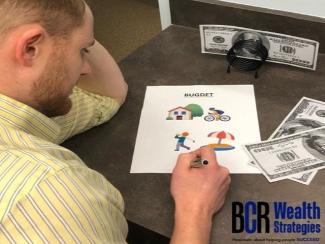
Lifestyle vs. Budget
When people hear the word "budget," they tend to equate it with “restrictions” – how much they can afford to spend, what they’re allowed to spend it on, and capping overall spending so they can save more. They think about recording every penny that goes out so they can see where they’ve gone over-budget and how they can make up for it.
But when you’re planning your budget for retiring, there’s another reason to record everything you spend that isn’t about restrictions. It’s about knowing how much it costs to live the life you have so you can make plans that will let you continue to live the life you want after you retire.
Making that kind of plan means you have to have a 100% complete account of what you spend. Sandra talks about how to do that in step #1 of this blog post. Here are two common mistakes you should avoid when you are going through the process:
1. Thinking your spending will go down, or taking a restrictive approach.
Many people think they’ll spend less once they retire, so they plan for a smaller budget or plan to restrict certain things. Then when they retire, they find this actually set them up for failure. Their spending needs actually haven’t decreased, and they can’t restrict what they thought they could. Spending money on their grandchildren, traveling more, and eating out frequently – they don’t have as much freedom as they want to do the things they love because they didn’t accurately identify what their lifestyle would cost.
2. Not recording one-off expenses.
When people try to figure out what they’re currently spending, they sometimes only record regular, monthly expenses. They leave out one-off purchases or expenses, like car or home repairs. Although these things are not part of a budget, you do need to record them because they will continue to crop up occasionally after you retire. Your HVAC will break at some point, and you will need an emergency fund that will cover it.
Empowering results
While you’re working out what you are currently spending, you may find places where you can cut back. If you do, that’s a nice bonus, but it’s not the point of doing this exercise. The goal is not to cut back; you just want to know where your money goes. When you look at monitoring your spending from this viewpoint, it’s empowering. It means you’ll have the spending money -and the freedom - you want when you retire.
-Clay Wood-

